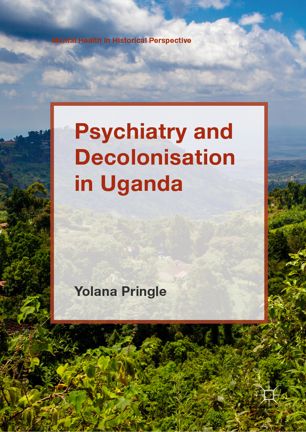

Most ebook files are in PDF format, so you can easily read them using various software such as Foxit Reader or directly on the Google Chrome browser.
Some ebook files are released by publishers in other formats such as .awz, .mobi, .epub, .fb2, etc. You may need to install specific software to read these formats on mobile/PC, such as Calibre.
Please read the tutorial at this link: https://ebookbell.com/faq
We offer FREE conversion to the popular formats you request; however, this may take some time. Therefore, right after payment, please email us, and we will try to provide the service as quickly as possible.
For some exceptional file formats or broken links (if any), please refrain from opening any disputes. Instead, email us first, and we will try to assist within a maximum of 6 hours.
EbookBell Team

5.0
30 reviewsThis open access book investigates psychiatry in Uganda during the years of decolonisation. It examines the challenges facing a new generation of psychiatrists as they took over responsibility for psychiatry at the end of empire, and explores the ways psychiatric practices were tied to shifting political and development priorities, periods of instability, and a broader context of transnational and international exchange. At its heart is a question that has concerned psychiatrists globally since the mid-twentieth century: how to bridge the social and cultural gap between psychiatry and its patients? Bringing together archival research with oral histories, Yolana Pringle traces how this question came to dominate both national and international discussions on mental health care reform, including at the World Health Organization, and helped spur a culture of experimentation and creativity globally. As Pringle shows, however, the history of psychiatry during the years of decolonisation remained one of marginality, and ultimately, in the context of war and violence, the decolonisation of psychiatry was incomplete.